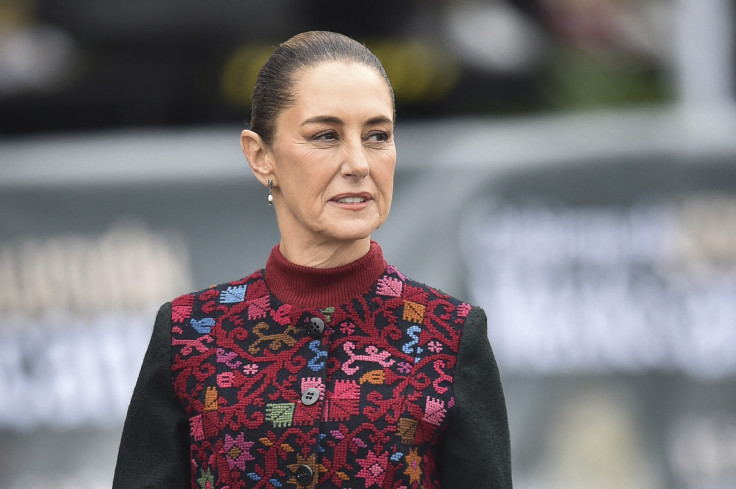
Mexican President Claudia Sheinbaum is stepping up her efforts to curb drug cartels and loosen the grip of organized crime groups throughout the country amid rising criticisms from President-elect Donald Trump's incoming administration, sending substantial troops and top government officials to Sinaloa.
The Mexican president has seemingly taken an aggressive approach at dealing with the national security, separating herself from her mentor and predecessor Andres Manuel Lopez Obrador, who prioritized addressing the root social causes of crime rather than attacking the cartels, coining the phrase "hugs not bullets" as an approach to stopping violence.
Most recently, Sheinbaum sent her security chief Omar Garcia Harfuch and thousands of troops to stem a bloody escalation in the turf wars engulfing Sinaloa, the most substantial deployment in at least six years. Mexican authorities also announced the largest seizure of fentanyl in history in an operation led by the Navy, which resulted in the seizure of a ton and a half of synthetic drug pills, or the equivalent of 20 million doses worth $400 million, according to El Pais.
Violence in Sinaloa escalated after cartel leader Ismael "El Mayo" Zambada was captured and taken to the U.S., a move he blames on Joaquin Guzman Lopez, the son of cartel boss Joaquin "El Chapo" Guzman, who is serving a life sentence in a maximum-security prison in Colorado.
The encounter has led to a bloody turf war in Sinaloa, as gunmen loyal to the two drug leaders, known as the Chapitos and the Mayiza, have been battling for power since September. The war has included the killing of police officers and businessmen suspected of having ties with the rival group. They have also set fire to and shot up businesses suspected of such ties.
Sheinbaum has also declared that among her top efforts to "pacify the country" will be a push to slash the killings in the country's 10 deadliest cities, including Tijuana and Ciudad Juarez on the U.S. border, according to a presentation of the strategy seen by The Wall Street Journal. She is also planning new efforts to combat the smuggling of the deadly drug fentanyl, which has quickly become the deadliest drug in the country.
Powerful organized-crime groups control about one-third of Mexico in areas where local government is largely indistinguishable from criminal gangs, according to WSJ. Violence in Mexico has remained at high levels, with more than 200,000 Mexicans being killed and a further 50,000 have gone missing during the violence of the past six years.
The President reportedly wants to replicate the success she had in Mexico City as the Head of Government, where the number of homicides halved on her watch. Harfuch, who used to be her security chief, worked closely with U.S. law-enforcement agencies and boosted intelligence gathering, police training and salaries.
Mexico's plan to address violence comes as the incoming U.S. administration of Donald Trump has repeatedly criticized its neighboring country over its drug cartels. He has also touted potential U.S. military action on Mexican soil.
During his first term, Trump considered ordering missile strikes on drug labs in Mexico but was talked out of it by former Defense Secretary Mark Esper, according to Esper's 2022 memoir.
Throughout his campaign, Trump also said he would take military action against cartels, impose a naval embargo to prevent drugs from crossing the border and designate cartels and their leaders as foreign terrorists. Separately, the Republican leader has threatened 25% tariffs on goods from Mexico if the country doesn't stop the flow of migrants and fentanyl.
Sheinbaum's recently adopted pro-active tactic poses some risks, as it can further inflame violence and homicides, as more confrontational positions have done in the past in a country where cartels are heavily armed with military-grade weapons, according to The Business Standard.
"There is a change without a doubt... we are seeing signs that the strategy of hugs and not bullets is on the way out," said Vicente Sanchez, a security expert and member of Mexico's National System of Investigators, a government agency that works to improve the quality of Mexican research.
© 2024 Latin Times. All rights reserved. Do not reproduce without permission.








